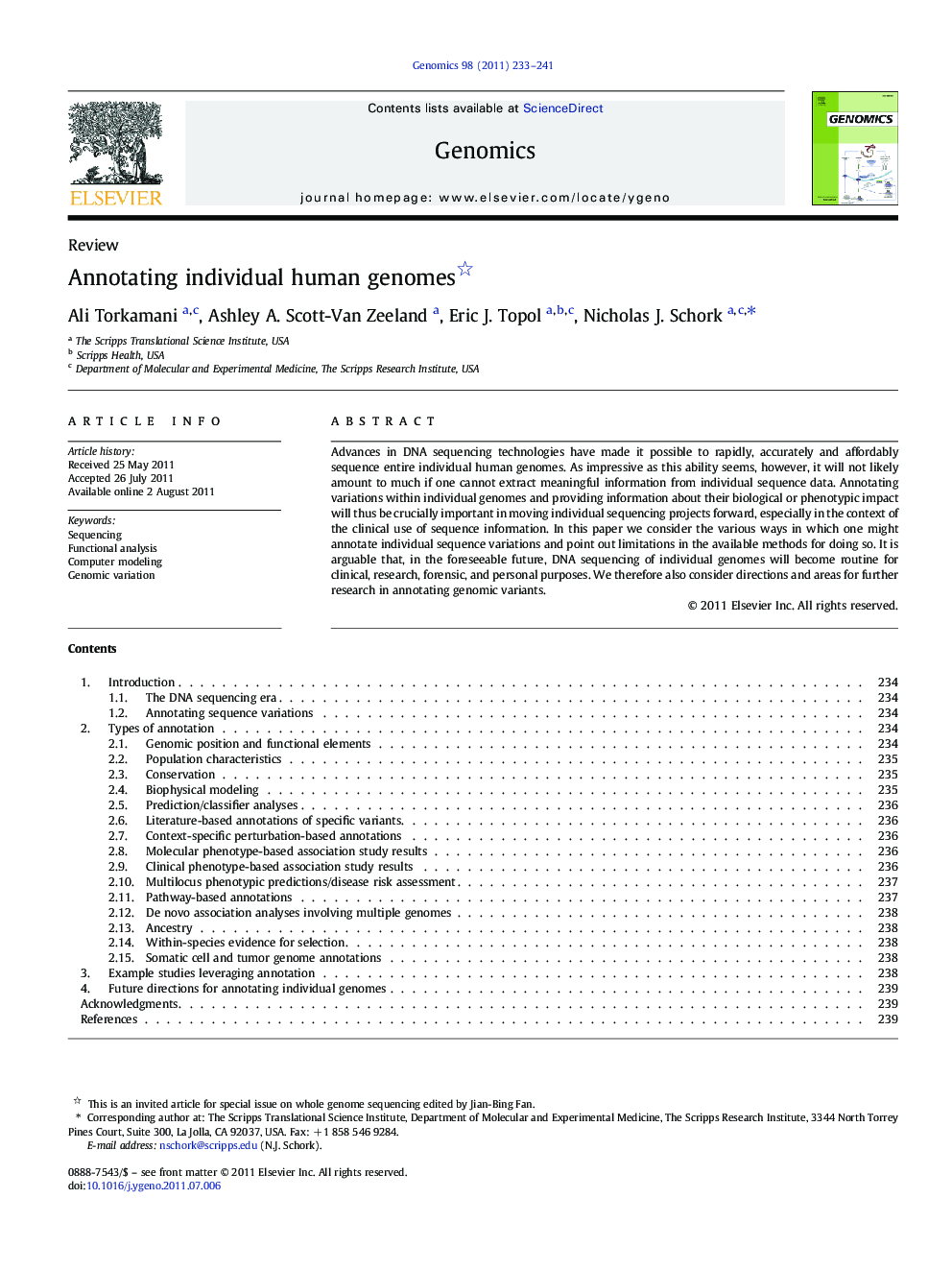| Article ID | Journal | Published Year | Pages | File Type |
|---|---|---|---|---|
| 2820737 | Genomics | 2011 | 9 Pages |
Advances in DNA sequencing technologies have made it possible to rapidly, accurately and affordably sequence entire individual human genomes. As impressive as this ability seems, however, it will not likely amount to much if one cannot extract meaningful information from individual sequence data. Annotating variations within individual genomes and providing information about their biological or phenotypic impact will thus be crucially important in moving individual sequencing projects forward, especially in the context of the clinical use of sequence information. In this paper we consider the various ways in which one might annotate individual sequence variations and point out limitations in the available methods for doing so. It is arguable that, in the foreseeable future, DNA sequencing of individual genomes will become routine for clinical, research, forensic, and personal purposes. We therefore also consider directions and areas for further research in annotating genomic variants.
► The future use of whole genome sequencing will require methods and tools for annotating variants. ► There are many ways to annotate variants, such as predicting functional effects and assessing their ancestry. ► Many methods for annotating DNA sequence variants are in their infancy and can be improved.
